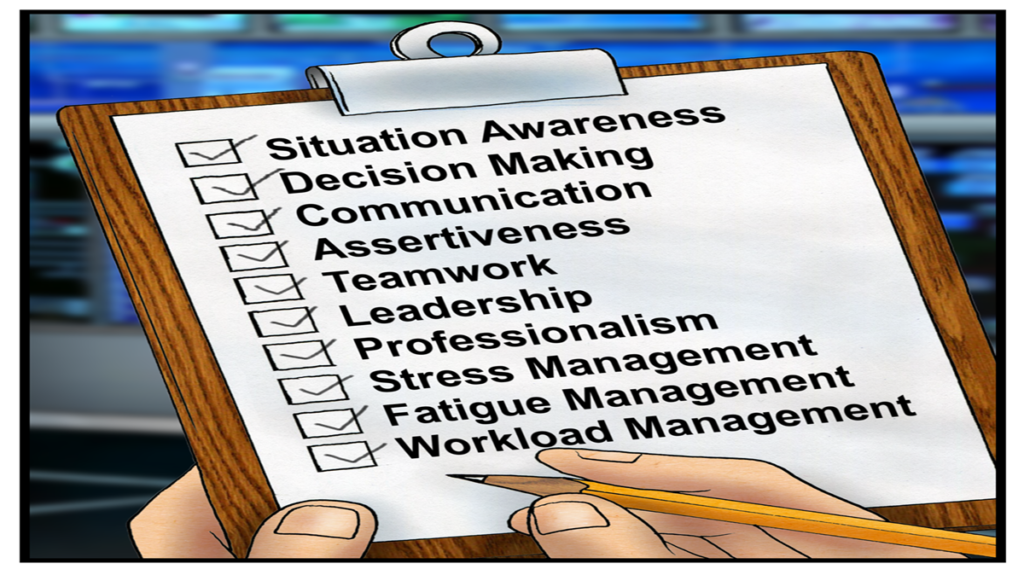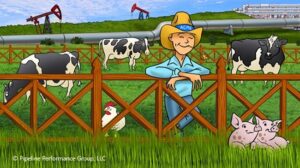We conducted a public Team Resource Management (TRM) workshop last month and emphasized the importance of using non-technical skills in control rooms. We only had time to provide an introduction to these five non-technical skills:
The purpose of this month’s article is to emphasize the importance of non-technical skills and to provide an example of how to develop control room team training that includes non-technical skills. I could write a book, if I covered all these skills.
Most job descriptions for Controllers, Operators, SCADA personnel, and pipeline technicians emphasize technical skills. Look at the job description below for a SCADA Specialist, easily found on the Internet. Notice the phrases that might be non-technical skills. I have made them bold. All of the others appear to be technical skills.
PRIMARY FOCUS
The primary focus of this position is to design, implement, deploy, support and maintain various SCADA systems. This position will also interface with other teams including other SCADA teams, IT, Automation, Measurement, and Operations as well other Business Units to ensure reliable functionality of the various SCADA systems.
- SCADA system design, implementation, integration, support and maintenance that includes data analysis, screen development, database updates, in-depth programming, and documentation.
- Maintains Operation Technology application software, hardware, and utilities required to support SCADA applications.
- Provides 24X7 on-call rotation to support Gas Control Center operations. Provides
support to various business groups such as Gas Control, Measurement, Commercial,
and Operations. - Work closely with Field Measurement Coordinator and Measurement Analyst to ensure accurate and timely data.
- Writes detailed description of user needs, program functions and steps required to
meet specifications. - Reviews SCADA system capabilities, workflow and scheduling limitations to determine if changes are possible within existing systems.
- Studies existing information processing systems to evaluate effectiveness and develops new systems to improve production and/or work flow.
- Implement and manage work assignments through the ServiceNow ticket system and MOC process. Works directly with ICS and IT security personnel for security related issues
and changes. - Assist in due diligence evaluation of potential acquisitions, as well as new technologies for the enhancement of SCADA systems and support.
- Assist in scheduling maintenance of equipment and supplies to ensure minimum downtime and efficient job completion.
- Determine root cause of any major or repeated SCADA issues. Advises and participates
in special projects as needed. Assist with the installation and troubleshooting of
SCADA equipment.
QUALIFICATIONS
- Bachelor of Science degree in Engineering, Computer Science or equivalent a plus.
- Ability to understand P&ID wiring diagrams.
- Experience with Open BSI, Modbus, ACM/AES multi-protocol driver, and PLC ladder logic.
- Experience with communication systems such as radio, cell modem, microwave, and satellite.
- 7 or more years of Telvent and Wonderware experience.
- 7 or more years SCADA/HMI applications experience in the liquids and gas pipelines industry.
- 7 or more years VB and SQL programming experience.
- 7 or more years .NET programming experience.
- Must be able to work without supervision and have strong interpersonal, verbal and communication skills.
- Must have excellent teamwork
Look at the job descriptions for the jobs in your Control Center or for job positions that might reasonably be expected to interact with Controllers. Do they include non-technical skills or does your company assume that people have these skills before they go to work? I am convinced they do not arrive at your workplace equipped with the skills listed in the drawing on page one.
I suspect that many organizational problems, even in Control Centers, are caused by a dearth of non-technical skills and not because a person does not know how to use the SCADA system or how to complete logs and paperwork. What does your training program emphasize? Does it include non-technical skills? Are non-technical skills important enough for them to be included as part of your training program? Can they be left to chance?
If I were going to provide basic training on non-technical skills as part of control room team training, I would include the subjects in the drawing on page one. I will use one of them, teamwork in control rooms, as an example. It is important to define the terms, to provide the elements of teamwork in a control room, to emphasize the desired behaviors, to discuss examples from your company, and to ask people to take action steps for improvements.
A simple definition of teamwork that fits control rooms and operations support is “skills for working in a group, in any role, to ensure joint task completion.” The joint task is transporting hazardous liquids or natural gas through pipelines and doing so safely and economically. In today’s world, it takes people in many jobs working together to complete that task 24-7-365. Those people need to be able to work together in a positive, respectful and supportive manner and to manage conflict in healthy ways.
Some elements of teamwork for control rooms and operations support might include:
- Consider the needs of others
- Support others
- Treat others with respect
- Deal with conflict and aggressive behavior
- Check one’s work and the work of others
- Exhibit a positive attitude toward rules and procedures
In a training session, provide an explanation for each of those elements and emphasize the desired behaviors. I will do so, briefly, for “Exhibit a positive attitude toward rules and procedures.” This means, for control rooms, that individuals and groups are “able to correctly apply rules and procedures with a positive attitude and a willingness to explain their value to others on the team.”
The behaviors that contribute to that element include:
- Correctly apply formal rules and procedures
- Understand and apply informal rules and norms of the group
- Demonstrate a self-disciplined attitude towards formal and informal rules and procedures
- When asked by others, explain rationale for rules and procedures
- Maintain complete logs and other documentation
- Take action if others do not correctly adhere to rules and procedures
In a training session, it is valuable to have company-specific examples of the elements and how it applies to company. Seek to discuss both positive and negative examples. In our training sessions, we use movie clips to illustrate both the elements and the behaviors. For teamwork, we use scenes from O Brother, Where Are Thou? and Twelve Angry Men. The examples work best when the attendees are allowed time to discuss the issues in small groups.
We also use accident reports from the NTSB, TSB of Canada, National Energy Board of Canada, and PHMSA to extract lessons where non-technical skills may be contributing factors to accidents. We also use reports and studies from other transportation modes. This exercise also works best if you use company-specific reports from accidents, near misses, abnormal operations, emergency response, and/or SCADA event or alarm logs.
Finally, we challenge and encourage people to apply what they have learned and to take actions that will improve their non-technical skills. I use this quote:
“Knowing is not enough; we must apply. Willing is not enough; we must do.” Goethe
I ask people to write down at least three specific actions that they will complete in the next month as a result of what they learned in a training session. What is one thing you will do that will improve your knowledge of non-technical skills as a result of reading this article?
As you can imagine, it would take many articles to cover the subject adequately. If you want to learn more, order and read the book Safety at the Sharp End: A Guide to Non-Technical Skills by Rhona Flin and Paul O’Connor.





